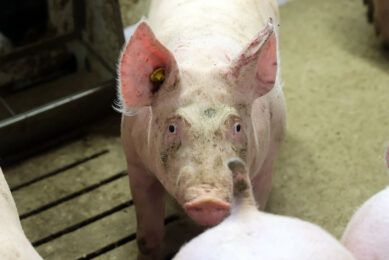Cameroon research: Almost all pigs in village have H1N1
In one village in northern Cameroon, a staggering 89% of the pigs studied had been exposed to the H1N1 influenza A virus (2009).
International Society for Infectious Diseases (ISID) in its Pro-Med Mail newsletters. The study is published in the current issue of Veterinary Microbiology.
Lead author is Kevin Njabo, a researcher in the University of California, Los Angeles (UCLA) department of ecology and evolutionary biology and associate director of the Center for Tropical Research.
Njabo and his colleagues randomly collected nasal swabs and blood samples from domestic pigs that were part of 11 herds in villages and farms in Cameroon in 2009 and 2010.
Past infection
In the village in northern Cameroon, Njabo found two pigs with active H1N1 infections, and virtually every other pig had evidence of a past infection in its blood.
“The pigs got H1N1 from humans,” Njabo said. “The H1N1 virus that we found in livestock in Cameroon is virtually identical to a virus found in people in San Diego just a year earlier, providing an astonishing example of how quickly the flu can spread all over the globe.
“The discovery of H1N1 in African swine is also important because it shows how farming practices can trigger disease outbreaks and suggests opportunities for improving human and livestock health. Our studies indicate that H1N1 infections are more common in swine that wander freely in villages than in animals that are confined to farms.”
“This particular H1N1 strain is ubiquitous,” said Smith, who is also a professor of ecology and evolutionary biology and a member of UCLA’s Institute of the Environment and Sustainability. “When different strains of influenza are mixed in pigs, such as an avian strain with a human strain, you can get new hybrid strains that may affect humans much more severely and can potentially produce a pandemic that can allow human-to-human infection. This is how a pandemic can arise; we need to be very vigilant.
Research
The research was conducted under the auspices of the Zoonotic Influenza Collaborative Network, led by the Fogarty International Center at the National Institutes of Health. The collaborative network is supported by international influenza funds from the Office of the Secretary of the Department of Health and Human Services.
Related websites:
• UCLA
• Veterinary Microbiology
• ISID











